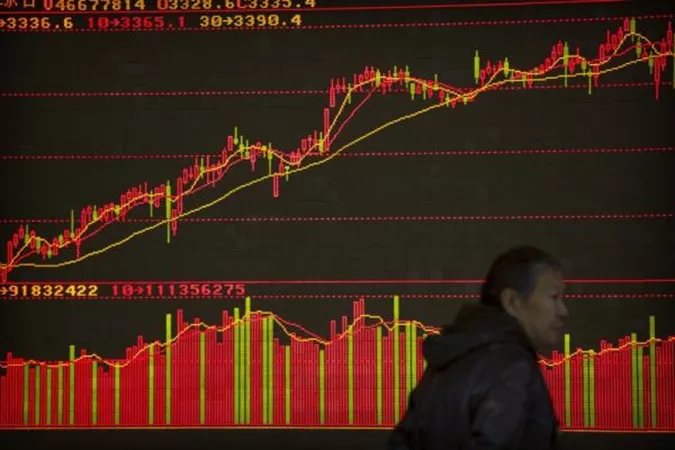Most Asian stock markets fell on Thursday after U.S. President Donald Trump announced new tariffs on automobiles, reigniting fears over his trade policies.
Technology and chipmaking stocks across the region also dropped, following a sharp sell-off in U.S. tech shares. Investors grew concerned about a possible oversupply of data center and computing equipment linked to the artificial intelligence (AI) boom.
Japanese stocks suffered the biggest losses in Asia, as the Nikkei index is heavily weighted with automakers and technology firms. South Korean stocks also declined, while Chinese markets remained largely stable.
Hong Kong’s stock market bucked the trend, gaining ground on optimism surrounding China’s AI sector and expectations of further economic stimulus from Beijing. Local tech shares in Hong Kong continued to perform independently from their U.S. counterparts.
Tariff Threats Weigh on Regional Markets
Broader Asian markets followed Wall Street lower after Trump’s tariff announcement. The U.S. president confirmed a 25% tariff on automobile imports, set to take effect on April 2. He is also expected to reveal additional trade tariffs on the same day.
U.S. stock futures dipped slightly in Asian trading hours.
Japan, South Korea Hit Hardest
Japan’s Nikkei 225 index dropped 1.1%, while South Korea’s KOSPI fell 1%, making them the worst-performing Asian markets on Thursday. Japan’s broader TOPIX index also declined by 0.7%.
Major Japanese automakers were among the biggest losers. Honda, Nissan, and Toyota shares fell between 2.6% and 3.1%. South Korea’s Hyundai Motor slid 3.8%, despite its recent pledge to invest $21 billion in expanding its U.S. operations — an effort seen as a buffer against tariffs.
Trump’s tariff plans sparked renewed concern over the broader impact of his trade strategy. Investors are now watching for more details when he announces reciprocal tariffs against key U.S. trading partners next week.
Tech and Chip Stocks Under Pressure
Asian technology and chip stocks also weakened, particularly those closely tied to the U.S. AI industry. This followed steep losses in U.S. tech stocks overnight, amid growing doubts about continued AI-driven demand and fears of an oversupply of data infrastructure.
Taiwan’s TSMC and Hon Hai Precision Industry — both suppliers to U.S. chip giant NVIDIA — lost 1.8% and 2.4%, respectively. Japan’s Advantest Corp. tumbled nearly 7%, and South Korea’s SK Hynix dropped about 2%.
The sell-off followed a report from TD Cowen that Microsoft had canceled several data center leases in the U.S. and Europe. The news raised worries that the AI sector may be facing a slowdown, which could hurt demand for chips and servers. On Wednesday, NVIDIA shares plunged nearly 6% on similar concerns.
Chinese Markets Resilient, Hong Kong Gains
In contrast, Chinese markets were stable. The Shanghai Shenzhen CSI 300 and the Shanghai Composite indexes posted slight gains. Hong Kong’s Hang Seng index rose 0.3%, led by local technology stocks that have remained largely shielded from global tech sector worries.
Investors in China were also awaiting signals of further economic support from Beijing and key manufacturing data expected next week.
Broader Asia Mostly Lower
Elsewhere in Asia, markets largely moved lower. Australia’s ASX 200 index declined 0.5%, weighed down by the threat of U.S. commodity tariffs. Attention was also on the Reserve Bank of Australia’s policy meeting next week.
Singapore’s Straits Times index rose 0.5% to a record high, as investors shifted away from technology and automotive stocks toward safer sectors like financials, which make up a large portion of the index.
Futures for India’s Nifty 50 index pointed to a flat opening, after recent gains in Indian shares lost momentum.


